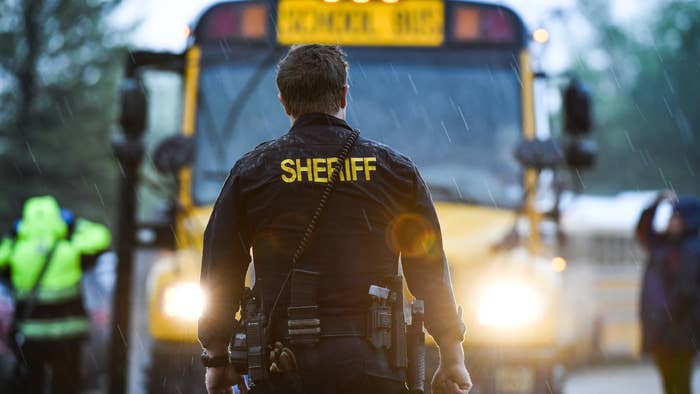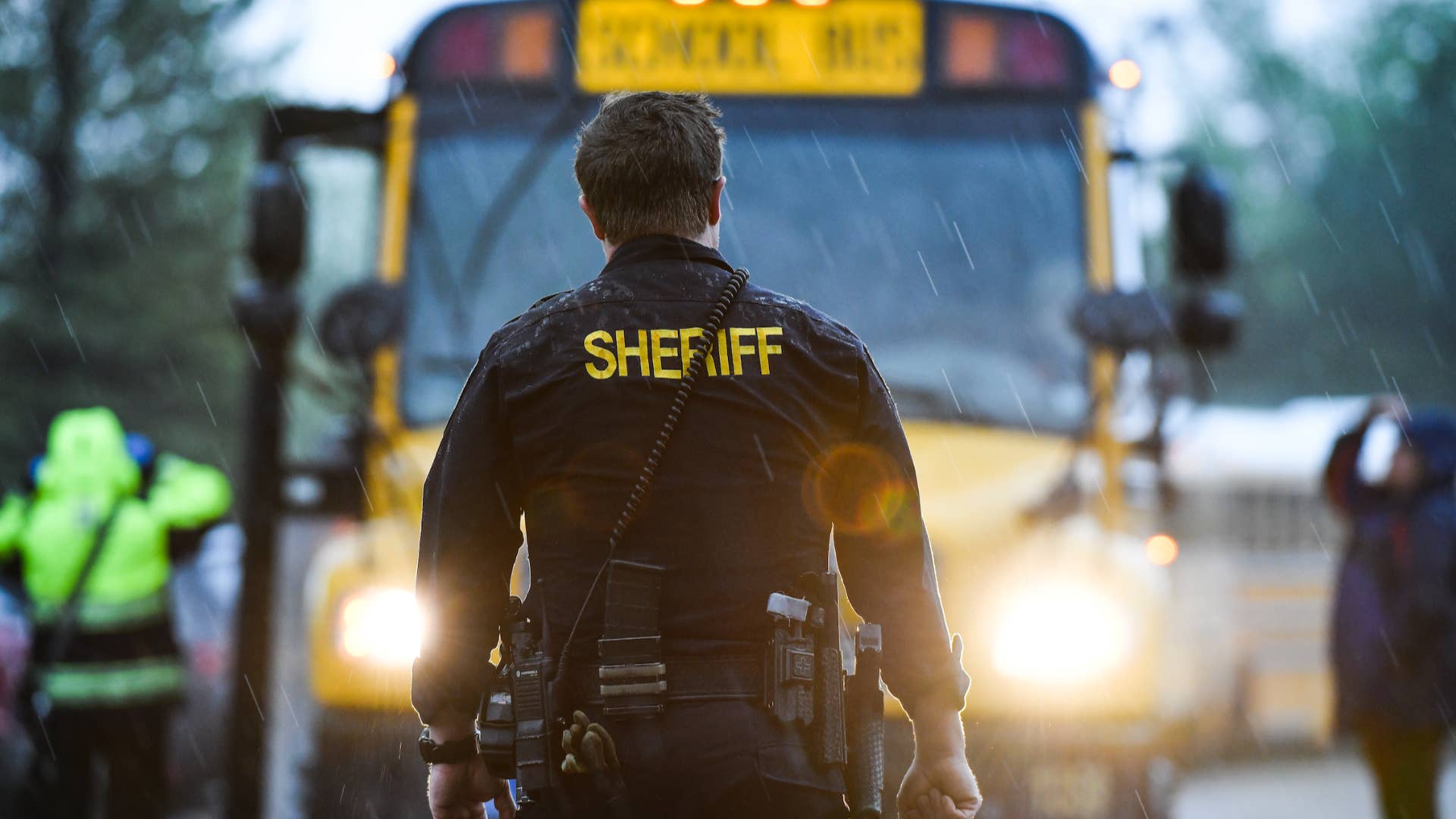
As the United States grapples with daily updates on COVID-19, a topic that once dominated the news cycle has expectedly fallen out of the discourse: school shootings.
On Monday, Robert Klemko of the Washington Post said March 2020—a month that saw continued school closures and a move to distance learning across the country—marked "the first March without a school shooting in the United States since 2002." Shortly after, Klemko pointed to an incident from March 2002 as one of several "close calls" for the month.
The 2002 incident he referenced occurred in Carmichael, California and ultimately saw a school resource officer successfully subdue a 13-year-old male student who had attempted to attack a science teacher. According to reports at the time, no shots were fired.
As Klemko's tweet started to gain traction on Monday, some questioned the stats behind it, as well as debated which sort of gun violence-related incidents could be traditionally defined as being a "school shooting." In follow-up tweets, Klemko pointed to stats from EverytownResearch.org and took issue with commenters who were relying solely on Wikipedia for school shooting information.
Gun-related sales, however, have seen a very different impact amid the novel coronavirus. A CNNreport from late March cited online ammunition retailer Ammo.com as having noticed ammunition sales increases of more than 1,000 percent in Colorado, 945 percent in Arizona, and 897 percent in Ohio.
And just last Friday, the Bureau of Alcohol Tobacco Firearms and Explosives shared new guidance to federally licensed firearm retailers stating that they can now offer drive-up or walk-up service to customers. Per the ATF, licensees can "carry out the requested activities" via those methods so long as the customer is on the exterior of the licensee's property at the address listed on the license itself.

